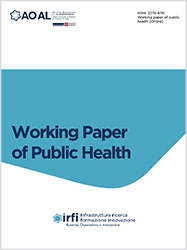Suicide is not exclusively a medical problem
Accepted: 11 July 2016
All claims expressed in this article are solely those of the authors and do not necessarily represent those of their affiliated organizations, or those of the publisher, the editors and the reviewers. Any product that may be evaluated in this article or claim that may be made by its manufacturer is not guaranteed or endorsed by the publisher.
Background: In the West, beginning in the early 19th Century, the belief was published that suicide was always, or almost always, the result of a mental disorder (a medical problem). This belief became established wisdom when psychological autopsies commenced in mid-20th Century. Should this belief be inaccurate, our response to suicide (medical treatment) will need to be reconsidered. Aim: To argue the case that metal disorder is not always, or almost always, the cause of suicide, and that suicide may occur in the absence of mental disorder. Method: The opinion of non-medical experts were explored, including philosophers, historians, sociologists, economists and ethicists, among others. The scientific basis of psychological autopsies was explored. Epidemiology of rates in different countries and gender differences were explored. Conclusion: Suicide is not exclusively a medical problem. While suicide is more common in people who have a mental disorder than people without a mental disorder, mental disorder is not a necessary condition. Suicide occurs in the absence of mental disorders. Thus, open discussions about the nature and causes of suicide are required, with a view to involving experts from a range of fields, and the general community, in dealing with the issue.
PAGEPress has chosen to apply the Creative Commons Attribution NonCommercial 4.0 International License (CC BY-NC 4.0) to all manuscripts to be published.

 https://doi.org/10.4081/wpph.2015.6699
https://doi.org/10.4081/wpph.2015.6699




